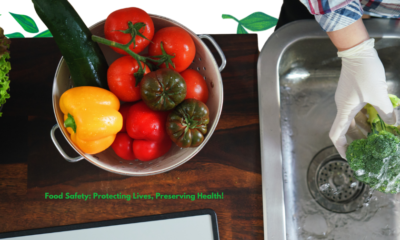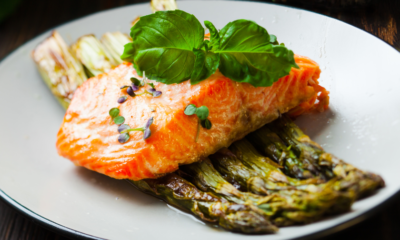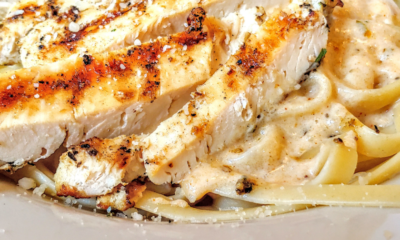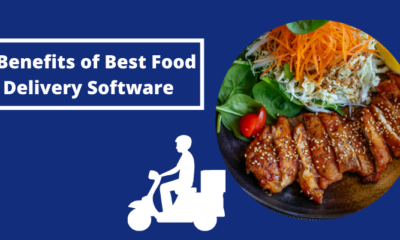Health & Fitness
5 Easy Tips To Select Healthy Protein Food Items
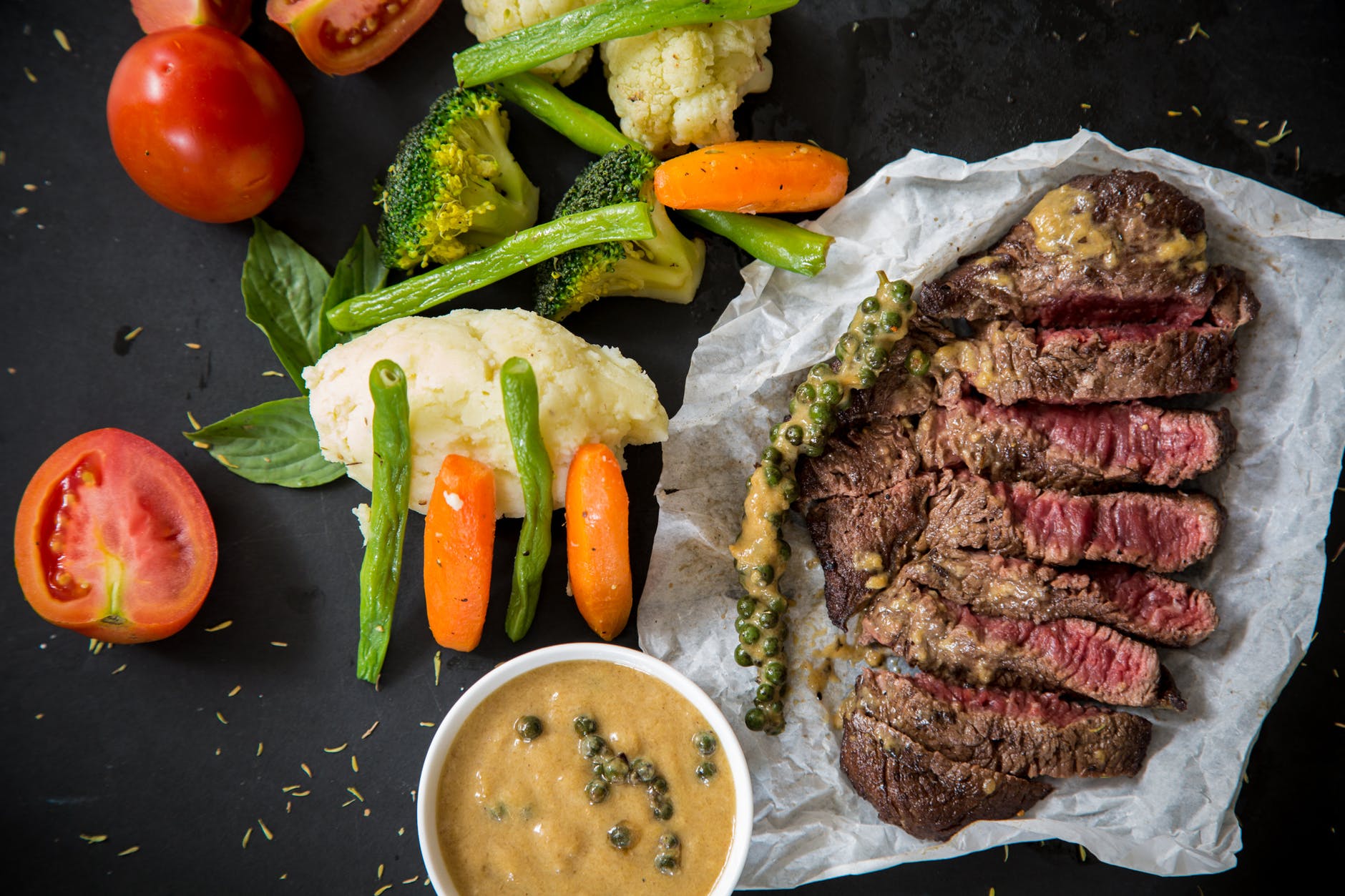
Almost every one grows up listening or reading about the importance of including proteins in their daily diet. Protein is among the essential nutrients that are required to keep the body functioning. It is a part of each cell of your body and needs to build and repair tissue, skin, muscles, hair, and even nails. Given the importance of proteins, it becomes pivotal to consume food rich in this nutrient to lead a healthy life.
Do you want to consume food items that are rich in healthy proteins? Are you wondering how to select such foods? Dive right in to find out a complete guide on choosing food items that are abundant with proteins.
Why are healthy proteins essential?
While the human body needs plenty of nutrients to survive, protein is the essential one. Even if you are on a diet and watching your calorie, sugar, or salt intake, it is still crucial to take the required protein amount. Healthy protein plays a pivotal role in creating and maintaining every cell in your body. It is the fuel that powers your cells and body.
Protein consists of amino acids attached in long chains, which gets them the name of building blocks. It is also considered ‘micronutrients,’ implying that you need large amounts to stay healthy. While most people believe you can only get proteins from animal sources, plants like soybeans, kidney beans, oats, and nuts can also offer healthy proteins. In case you want to try soybeans for the high protein content, you can learn more about them from USSEC.
If you’re wondering why you need to consume healthy proteins each day, here are a few compelling reasons:
- Protein helps build bones, muscles, skin, nails, hair, and even cartilage.
- Your body also requires protein to build and repair tissues.
- Red blood cells in your body contain a protein compound to carry oxygen through your body. This process ensures the supply of essential nutrients through your entire body.
- Almost half of the dietary protein you ingest goes into the making of enzymes that aid the digestion of food, along with the making of new cells and body chemicals.
- Proteins also help regulate the hormones, especially at the time of development and transformation of cells during puberty.
How to select healthy protein food items?
When it comes to ingesting protein, most people try to get a sufficient protein quantity and not quality protein. The quality can adversely impact your health, and hence it becomes essential to choose healthy protein food items. Here are five helpful tips that you must keep in mind when choosing healthy protein food:
-
Choose the quantity carefully.
When you plan to incorporate protein into your daily diet, the first thing you must know is the right amount needed by your body. If you consume a diet of 2,000 calories in a day, around 200-600 calories must come from protein. One gram of protein has about four calories, so you will require 50-150 grams of proteins in a day to stay healthy. Each gram of cooked protein that you get from meat is 7 grams, so you need to consume 8 ounces of protein every day.
If you are consuming diced chicken breast meat, you can get 38 grams of protein from one cup. In case you want to include tuna chicken into your diet, three ounces of canned tuna has 24 grams of protein.
-
Try a range of plant proteins.
Different foods can contain varying combinations or amounts of Essential Amino Acids or EAA. Plant proteins can lack the full range of EAAs. If you’re opting for an entirely plant-based diet, you will need to consume various plants to meet the EAA requirement. You can consume the following:
- Legumes: 16.2 grams of proteins in cooked kidney beans
- Chickpeas and hummus: 14.5 grams of proteins from 1 cup of cooked chickpeas
- Nut and nut butter: 25.8 grams from 100 grams of peanuts
- Chia seeds: 4.5 grams in one ounce of seeds
- Oats: 1 cup has 10.7 grams of healthy proteins
- Quinoa: 1 cup of quinoa contains 8.14 grams of the nutrient
- Soybeans: 36 grams from 100 grams of soybeans
-
Eat more dairy products.
Besides being a good source of proteins, dairy products can also offer you plenty of other nutrients like iron, calcium, and vitamin D. As per a review, consuming more milk and yogurt can keep you full for long, prevent overeating, and assist in weight loss.
These products tend to increase the hormones glucagon concentrations like peptide-1 and peptide YY, which sends a signal to the brain that the stomach is full. While you get 7.69 grams of protein from a cup of whole milk, plain yogurt will have 14 grams of protein content in a cup. You can also get 6.79 grams of proteins from an ounce of cheddar cheese and 8.65 grams from goat cheese.
-
Include animal proteins.
Almost 46% of the total proteins consumed in the United States come from animal sources like eggs, meat, and fish. Even though meat is an excellent source of protein, it may contain high levels of unsaturated fats responsible for high blood pressure and increase the risk of heart diseases. The primary animal sources are:
- Poultry: 100 grams of roasted chicken can contain 25.01 grams of proteins and 6.63 grams of fat. Skinless roasted turkey may have 29.06 grams of protein content.
- Fish: Fish is abundant with proteins and has a high level of EFAs. A standard serving of half-fillet serving of tuna will have 43.6 grams of protein.
- Eggs: One medium-sized egg can provide 5.53 grams of protein to you.
-
Add protein supplements to your diet.
If you‘re unable to get the required amount of protein through your diet, you can take the help of natural supplements to make up for it. Protein powders have become quite popular today, especially among athletes and bodybuilders who want to gain muscles. When looking for a high-grade protein powder, make sure you check the Biological Value (BV), which indicates how effectively your body can make use of the protein in a food. A score of 100 will imply that your body can completely absorb it. While whey protein has a BV of 104, it is only 74 in soy protein powder.
Final Thoughts
As much as essential protein is, it is even more crucial to make healthy protein choices. When you are trying to incorporate proteins into your daily diet, make sure you check the quantity, source, and fat content you consume with it. Keep the above tips in mind to have a protein-rich diet.
-

 Press Release3 days ago
Press Release3 days agoClinical Trials Market Set for Robust Growth, Driven by Drug Development Surge and Digital Innovation
-

 Press Release6 days ago
Press Release6 days agoBellarium ($BEL) Price Prediction: Could It Hit $5 by 2026?
-

 Business5 days ago
Business5 days agoHow Managed IT Solutions Help Small Teams Compete at Enterprise Scale
-

 Press Release4 days ago
Press Release4 days agoIndustrial Boiler Market Expected to Surpass USD 24.4 Billion by 2035 Amid Growing Demand for Energy Efficiency and Industrialization
-

 Press Release4 days ago
Press Release4 days agoFill-Finish Pharmaceutical Contract Manufacturing Market Expected to Flourish Amid Biopharmaceutical Boom and Global Outsourcing Trend by 2035
-

 Press Release4 days ago
Press Release4 days agoPreventive Vaccines Market to Witness Strong Growth by 2035
-

 Press Release4 days ago
Press Release4 days agoGreen Bio Chemicals Market Poised for Sustainable Growth amidst Global Shift to Eco-Friendly Alternatives by 2035
-

 Press Release4 days ago
Press Release4 days agoPet Food Nutraceutical Market Set for Robust Expansion Amid Rising Demand for Pet Wellness by 2035






